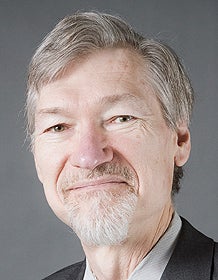Abstract
In 1984 Ronald Gilson published Value Creation by Business Lawyers: Legal Skills and Asset Pricing. It began: "What do business lawyers really do? Embarrassingly enough, at a time when lawyers are criticized with increasing frequency as nonproductive actors in the economy, there seems to be no coherent answer." He dismissed lawyers' own answer that "they 'protect' their clients, that they get their clients the 'best' deal." He also rejected the academic literature which offered a laundry list of roles the business lawyer plays: "a counselor, planner, drafter, negotiator, investigator, lobbyist, scapegoat, champion, and, most strikingly, even as a friend." Dissecting the corporate acquisition as his specimen, Gilson concluded that lawyers add value as "transaction cost engineers." In particular, lawyers bridge the parties' divergent expectations about returns on the asset to be transferred by drafting an earnout which makes the price contingent on its returns between the signing of the deal and the closing; and overcome lack of information (principally of the buyer) by arranging efficient production and verification of information. From these findings Gilson also recommended that legal education for business practice downgrade traditional subjects (like analysis of appellate cases and knowledge of relevant regulatory law) in favor of corporate finance and transaction cost economics.
In the succeeding 24 years Gilson and others refined his thesis, but no one fundamentally challenged it. This literature about what corporate lawyers do (the "received model") is too narrow. This article takes a wider and deeper perspective. Part I describes the received model. Part II exposes several problems with that model. Part III offers a fuller vision showing that business lawyers perform a greater range of activities using a larger set of skills than in the received model. Although these activities and skills are extremely varied, it is less accurate to say that business lawyers are transaction cost engineers than that they are enterprise architects. Part IV discusses the implications of this revised model for legal education. It argues that, although a knowledge of corporate finance and transaction cost economics is useful for some business lawyers, it is more important that they understand the obstacles to optimizing the performance of business entities and the contractual mechanisms available to overcome these obstacles. They also need specific behavioral skills, including how to negotiate when all parties are trying to build mutual trust and confidence.
Keywords
Value Creation by Business Lawyers, Legal Skills and Asset Pricing by Ronald Gilson, Transaction cost engineers, Enterprise architects, Business lawyers, Profession, Job skills, Job knowledge, Business law practice
Publication Date
2009
Document Type
Article
Place of Original Publication
The Business Lawyer
Publication Information
64 The Business Lawyer 279 (2009)
Repository Citation
Dent, George W., "Business Lawyers as Enterprise Architects" (2009). Faculty Publications. 503.
https://scholarlycommons.law.case.edu/faculty_publications/503

